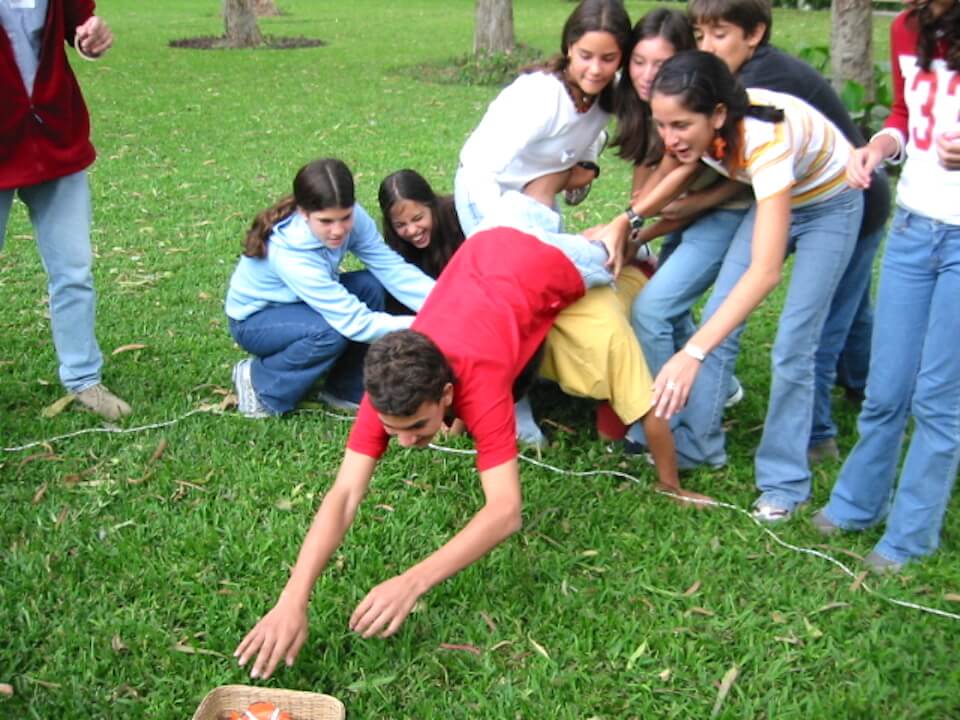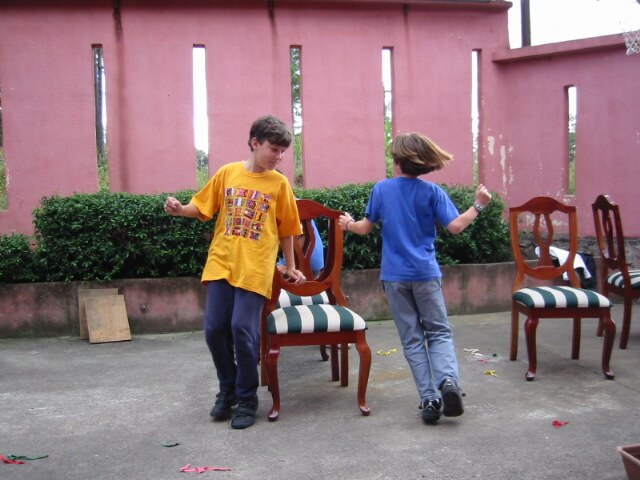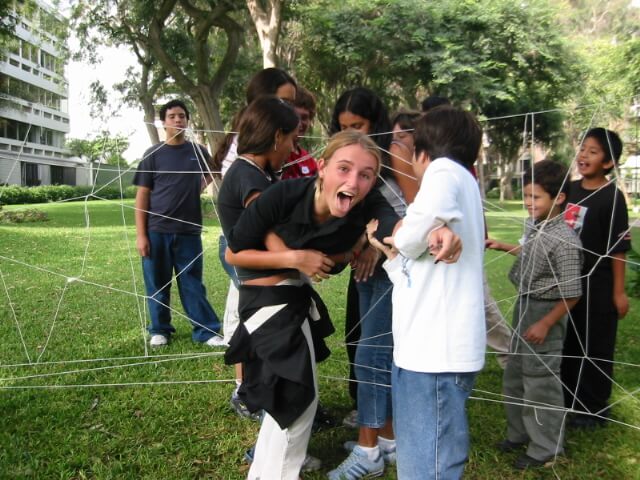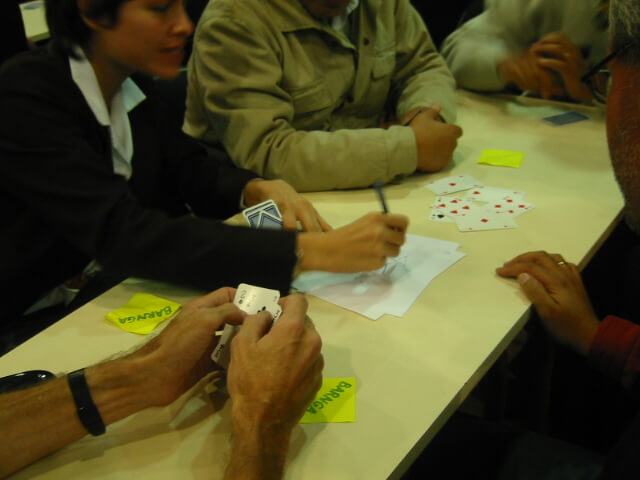How playing can help expat children
In this post, I look back at my 31-years of life abroad to reflect on how playing can help expat children (and not only them) in their transitions.
I practice Linguistic Empathy and I expect you to do the same. Please bear with me if my English is not perfect. Read the original version here.
I’ve always loved to play, and when I became a mother I didn’t spare myself. Reminding the great times I spent playing as a child, I always went out of my way to let my children play as much as possible.
But I grew up in a single country. I was born and raised in Milan, in the same area. Finding playmates was never a problem for me. I played with school friends and cousins who lived in the area, and peers from my building and in the neighborhood.
This is something that expat kids don’t know. Their life in a new country develops between the complexity of the beginnings, in which everything is unknown and must be learned from scratch, and the sadness of the end, when the time comes to leave the beloved friends.
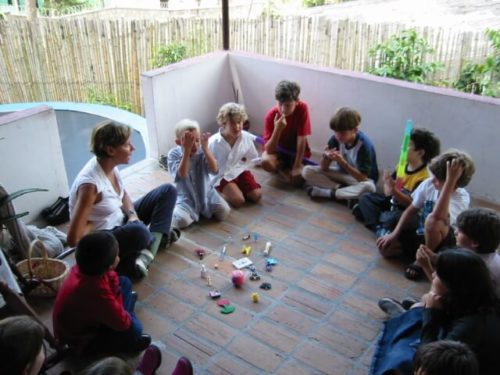 In my experience, playing can do wonders to speed up the process of building a circle of friendships for our children. I talked about it a bit in this article, but today I want to go deeper and analyze with you how we can use the fantastic tool that is playing to help our sons and daughters to absorb the impact of landing in their new realities.
In my experience, playing can do wonders to speed up the process of building a circle of friendships for our children. I talked about it a bit in this article, but today I want to go deeper and analyze with you how we can use the fantastic tool that is playing to help our sons and daughters to absorb the impact of landing in their new realities.
First of all, playing distracts, calms and fills the void that our expat children often feel inside when everything they love has remained inexorably behind. Even if the early days in a new country are very tiring and we don’t always have the desire and lucidity to throw ourselves on the floor playing the dog Beethoven or sit at the table to buy houses with Monopoly, it is very important to make an effort to do so.
An expat family that uses playing as a daily practice, same as a meal, a walk or brushing teeth, ensures easier passages between one reality and another. Because it will always be able to create moments of lightheartedness (playing suspends from reality) that will constitute a warm refuge for the children in times of uncertainty.
Playing becomes a family ritual, and I don’t need to tell you how important rituals are to expat children and families. They give security, a sense of belonging and continuity. And unlike other rituals, which perhaps involve external elements that we can’t control, playing can be done anywhere and at any time.
And what about relationships with the world outside of the family? Here’s how playing helped me support my sons through the various relocations:
Honduras, playing to make my home loved and trustworthy to the parents of my son’s classmates
When we arrive in a new country and no one invites our children to play at home, the only thing we can do is what we would like to happen: that is, be the ones who invite their mates home. For this to happen, however, two conditions must exist:
- children must want to come to our house
- parents must trust us enough to let their sons and daughters come to our place
Playing comes to the rescue. Because by creating the first condition, that is, that schoolmates become eager to come to our house, we also solve the second: it is difficult for parents to prevent their children from spending days in strangers’ homes, if the feedback they give is more than positive.
But I’m not talking about a generic playing. There are games that, in order to be organized and truly enjoyable, need the presence of the adults. Examples? Mercante in Fiera (Italian cards game that would translate Merchant at the Fair), musical chairs, treasure hunt are the first three that come to mind, and that I have organized again and again both in Honduras and Peru.
Peru, playing to unlock a complicated and painful situation
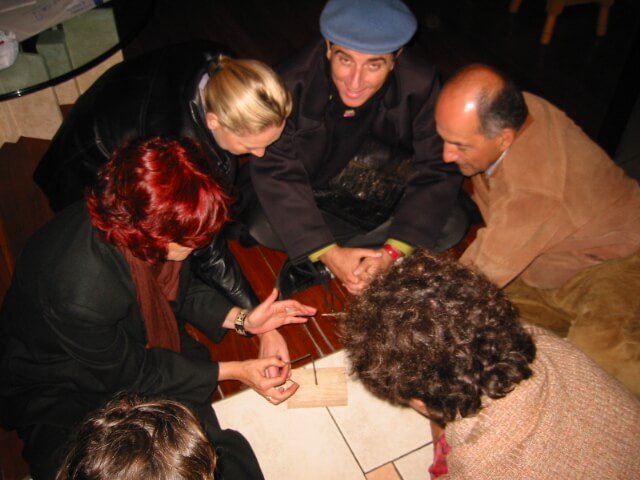 The French school my children attended in Lima was not the best in terms of welcoming international students. Indeed, it was just a disaster, but this is not the subject of my post. The beginnings of my eldest son in his new school were very hard. For him and, consequently, for us.
The French school my children attended in Lima was not the best in terms of welcoming international students. Indeed, it was just a disaster, but this is not the subject of my post. The beginnings of my eldest son in his new school were very hard. For him and, consequently, for us.
When Alessandro was not invited by his companions to play at home, he was teased, and once even physically attacked, we tried to figure out what was wrong. We quickly realized that there was no welcoming culture in the school, and consequently in the single classes.
We decided to organize a class barbecue, with the specific intention of letting teachers and pupils play. They enjoyed themselves like crazy. The students watched with curiosity as their professors tried to fit a handful of nails all together on a same, single nail. The teachers were grateful to see the class engaging in group games designed to create cohesion, enthusiasm and identity.
We did not solve the problems in a day, but the playful activities allowed the children to relax, have fun and free themselves, even if only for a few hours, of those mental constructions that prevented them from welcoming the “different” in their group . The games created a space where they could relate in a different way. And that way of relating remained within them even when they were back at school and tended to revert to the old relational dynamics.
Peru, playing to raise parents’ awareness
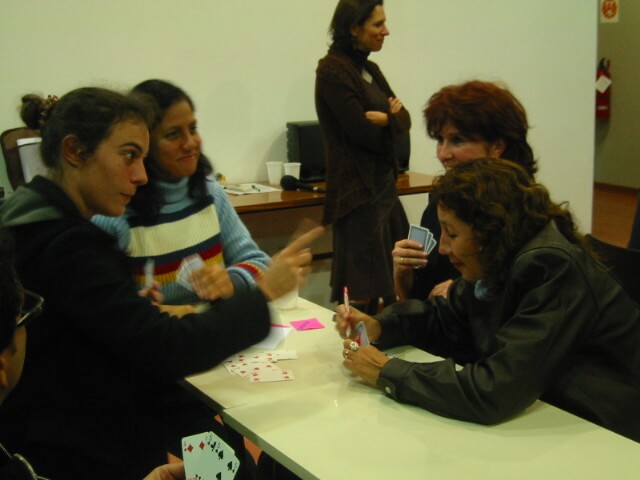 The dynamic of non-acceptance of the different has very deep roots and is not clear even for Peruvian parents (but also for many non-Peruvian ones) of international schools. When we arrived at the French school in Lima, most of the Peruvian parents were not really aware of what it means to feel different and to have to fit into a compact environment whose rules and values must be discovered.
The dynamic of non-acceptance of the different has very deep roots and is not clear even for Peruvian parents (but also for many non-Peruvian ones) of international schools. When we arrived at the French school in Lima, most of the Peruvian parents were not really aware of what it means to feel different and to have to fit into a compact environment whose rules and values must be discovered.
My proposal was therefore to create a cycle of meetings between parents, to push towards the understanding of something that they did not have the opportunity to experience firsthand, and therefore struggled to understand.
What else could I propose if not a nice Barnga session? Barnga is a very useful simulation of what it means to arrive in a place where the rules are different from those we know.
The meetings were a success, and not only because, following a careful debriefing, the parents were able to realize what expat kids go through when arriving in a new environment. They also had a lot of fun, and this allowed to create new bonds and revive old ones, but also to preserve that moment as a warm element of construction of a new identity: the parents of the French school, all committed towards a single goal, that of creating the best possible school for their sons and daughters, in which no one would feel excluded or unhappy.
Playing as element of my mobile family identity
You may know my family history. My two children grew up in a flurry of different countries. It was not always easy to relocate, especially when they were older and suffered a lot from leaving friends and routines behind. Playing has always been a constant in our family, in massive doses. Obviously adapted to the various life stages and ages of children. In our mobile story, we have always played and made friends and children play. Even today that my two young men live away from home, we continue to play a lot. When every summer we meet in our beloved house in Tuscany, the first thing we do after putting down our suitcases and opening the windows is to sit and play. Because home, for us, is also playing.

